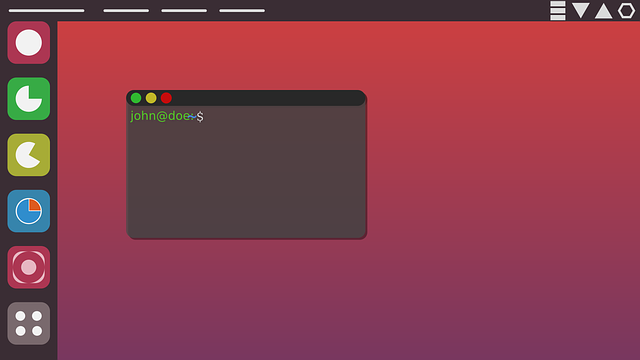Linux Introduction
Linux is an open-source operating system kernel that is used as a foundation for many different operating systems, commonly referred to as Linux distributions or simply “distros”. These distros are typically created by a community of developers who customize the Linux kernel and build additional software components to create a complete operating system.
Read out the article for more Knowledge about linux :Linux OS | An Introduction to the Innovative, Customizable, and Secure Operating System
There are hundreds of different Linux distributions available, each with its own set of features, strengths, and weaknesses. Here are a few popular ones:
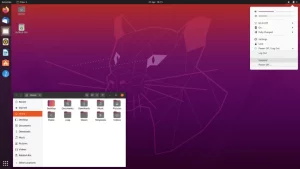
1. Ubuntu
One of the most popular Linux distributions, Ubuntu is known for its ease of use, community support, and regular release cycle. It’s often recommended for beginners because of its user-friendly interface and comprehensive software library.It is famous due to:
- Ease of use: Ubuntu is designed to be user-friendly and easy to use, with a graphical interface that makes it accessible to users who may not be familiar with Linux.
- Free and open source: Ubuntu is free to use and distribute, and it is open source, which means that users have access to the source code and can modify it to suit their needs.
- Comprehensive software library: Ubuntu has a comprehensive software library, with thousands of free and open-source applications that users can install with just a few clicks.
- Regular releases: Ubuntu has a regular release cycle, with new versions of the distribution released every six months. This ensures that users have access to the latest software and security updates.
- Community support: Ubuntu has a large and active community of users and developers who provide support, help, and advice through forums, wikis, and other channels.
- Security: Ubuntu is known for its security features, with regular security updates and a strong focus on security and privacy.
- Customizability: Ubuntu is highly customizable, and users can modify and configure the system to suit their needs and preferences.
Overall, Ubuntu is a reliable, user-friendly, and customizable Linux distribution that is well-suited for a wide range of users, from beginners to advanced users and developers.
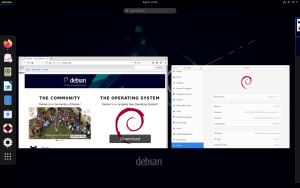
2. Debian
Debian is a stable and reliable Linux distribution that’s popular among developers and system administrators. It’s known for its robust package management system, which makes it easy to install and manage software packages. It offers several advantages to its users, including:
- Stability: Debian is known for its stability, with a focus on testing and quality assurance that ensures that the software is stable and reliable.
- Large software repository: Debian has a large and comprehensive software repository that includes over 51,000 packages, covering a wide range of software applications and tools.
- Flexibility: Debian is highly flexible and customizable, allowing users to configure the system to suit their needs and preferences.
- Package management: Debian has a robust package management system that makes it easy to install and manage software packages. The apt package manager, for example, makes it easy to search for and install packages, as well as to manage updates and dependencies.
- Security: Debian is known for its strong focus on security, with regular security updates and a large community of developers and users who help to identify and fix security vulnerabilities.
- Community support: Debian has a large and active community of users and developers who provide support, help, and advice through forums, wikis, and other channels.
- Compatibility: Debian is highly compatible with other software and tools, making it easy to integrate with other systems and tools.
Overall, Debian is a stable, reliable, and highly customizable Linux distribution that is well-suited for users who value stability, flexibility, and security. It’s especially popular among developers, system administrators, and other power users who require a highly configurable and reliable operating system.
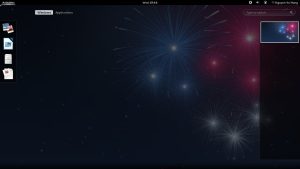
3. Fedora:
Fedora is a community-driven distribution sponsored by Red Hat. It’s known for being cutting-edge, with regular releases that include the latest versions of software packages. It’s often used by developers and power users who want access to bleeding-edge technologies. It offers several advantages to its users, including:
- Cutting-edge software: Fedora is known for its focus on providing the latest software and technologies, which makes it a popular choice among developers and other tech enthusiasts.
- Community-driven development: Fedora is developed and maintained by a community of developers and users, who work together to create a high-quality and cutting-edge operating system.
- Rapid development cycle: Fedora has a rapid development cycle, with new releases every six months, which ensures that users have access to the latest software and technologies.
- Package management: Fedora has a robust package management system that makes it easy to install and manage software packages. The dnf package manager, for example, makes it easy to search for and install packages, as well as to manage updates and dependencies.
- Security: Fedora is known for its strong focus on security, with regular security updates and a large community of developers and users who help to identify and fix security vulnerabilities.
- Customizability: Fedora is highly customizable, allowing users to configure the system to suit their needs and preferences.
- Active community support: Fedora has a large and active community of users and developers who provide support, help, and advice through forums, wikis, and other channels.
Overall, Fedora is a reliable, customizable, and cutting-edge Linux distribution that is well-suited for users who want access to the latest software and technologies, while also valuing stability and security. It’s especially popular among developers, system administrators, and other power users who require a highly configurable and reliable operating system.
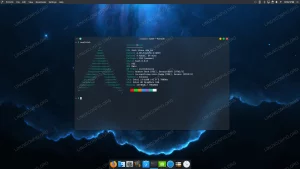
4. Arch Linux
Arch Linux is a lightweight and flexible distribution that’s designed for advanced users who want complete control over their system. It has a rolling release model, which means that packages are updated continuously, and users have access to the latest software versions. It offers several advantages to its users, including:
- Minimalist design: Arch Linux has a minimalist design, with a focus on simplicity and modularity. This means that users can customize and configure the system to suit their needs and preferences, without being burdened by unnecessary features and bloat.
- Rolling release model: Arch Linux uses a rolling release model, which means that users have access to the latest software and updates as soon as they are released. This ensures that the system is always up-to-date and provides the latest features and improvements.
- Comprehensive documentation: Arch Linux has a comprehensive and detailed documentation that is updated frequently, which makes it easy for users to find information and troubleshoot problems.
- Package management: Arch Linux has a powerful and flexible package management system that makes it easy to install and manage software packages. The Pacman package manager, for example, is fast and efficient, and provides advanced features like package signing and dependency resolution.
- Community support: Arch Linux has a large and active community of users and developers who provide support, help, and advice through forums, wikis, and other channels.
- Customizability: Arch Linux is highly customizable, allowing users to configure the system to suit their needs and preferences.
- Lightweight and fast: Arch Linux is lightweight and fast, with minimal overhead and low resource usage. This makes it well-suited for older or low-powered hardware, as well as for users who prioritize performance and speed.
Overall, Arch Linux is a powerful and customizable Linux distribution that is well-suited for users who want a minimalist and lightweight system, while also valuing flexibility, customization, and up-to-date software. It’s especially popular among advanced users, developers, and other power users who require a high level of control over their system.
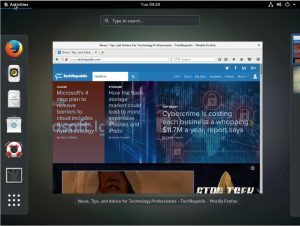
5. CentOS
CentOS is a free, community-supported distribution that’s based on the Red Hat Enterprise Linux codebase. It’s known for its stability and security, and it’s often used for server deployments.It offers several advantages to its users, including:
- Stability and reliability: CentOS is known for its stability and reliability, with a focus on testing and quality assurance that ensures that the software is stable and reliable.
- Compatibility: CentOS is highly compatible with other software and tools, making it easy to integrate with other systems and tools.
- Large software repository: CentOS has a large and comprehensive software repository that includes over 9,000 packages, covering a wide range of software applications and tools.
- Package management: CentOS has a robust package management system that makes it easy to install and manage software packages. The yum package manager, for example, makes it easy to search for and install packages, as well as to manage updates and dependencies.
- Security: CentOS is known for its strong focus on security, with regular security updates and a large community of developers and users who help to identify and fix security vulnerabilities.
- Community support: CentOS has a large and active community of users and developers who provide support, help, and advice through forums, wikis, and other channels.
- Enterprise-level features: CentOS is designed to be used in enterprise environments, and as such, includes enterprise-level features such as long-term support, system management tools, and more.
Overall, CentOS is a stable, reliable, and highly compatible Linux distribution that is well-suited for users who value stability, compatibility, and security. It’s especially popular among system administrators, IT professionals, and other users who require a highly reliable and stable operating system.
Conclusion
There is no single “best” Linux distribution, as the best distribution for you will depend on your specific needs, preferences, and skill level. Each Linux distribution has its own strengths and weaknesses, and the best one for you will depend on what you’re looking for in an operating system. Here are a few examples:
- If you’re new to Linux and want a user-friendly and easy-to-use distribution, Ubuntu is a popular choice.
- If you’re looking for a highly customizable and cutting-edge distribution, Arch Linux is a popular choice.
- If you’re a developer or system administrator and value stability and compatibility, CentOS is a popular choice.
- If you’re interested in open-source software and privacy, Debian is a popular choice.
- If you’re interested in a Linux distribution with strong community support and a focus on security, Fedora is a popular choice.
Ultimately, the best Linux distribution for you will depend on your specific needs, skill level, and preferences. It’s worth experimenting with a few different distributions to see which one works best for you.
